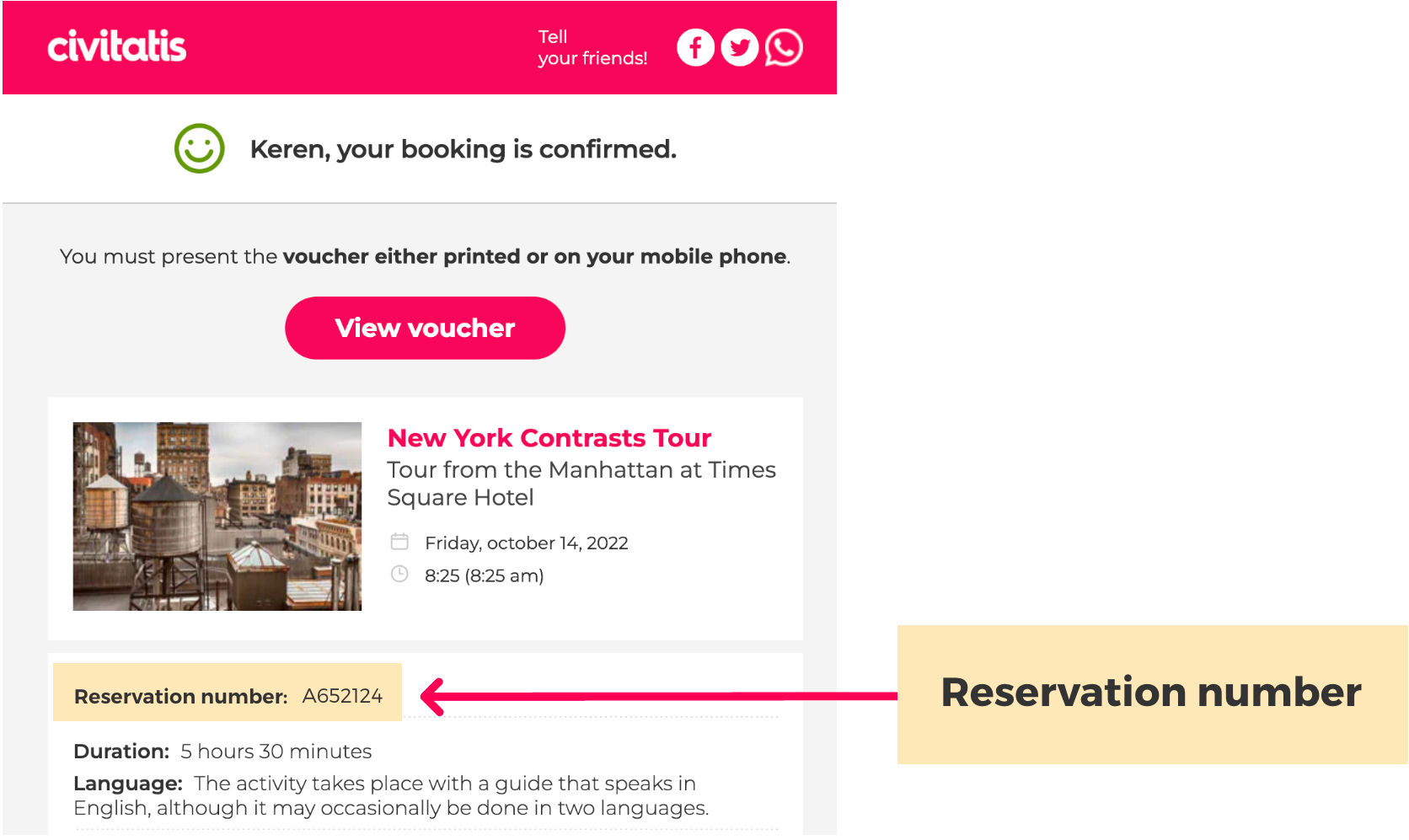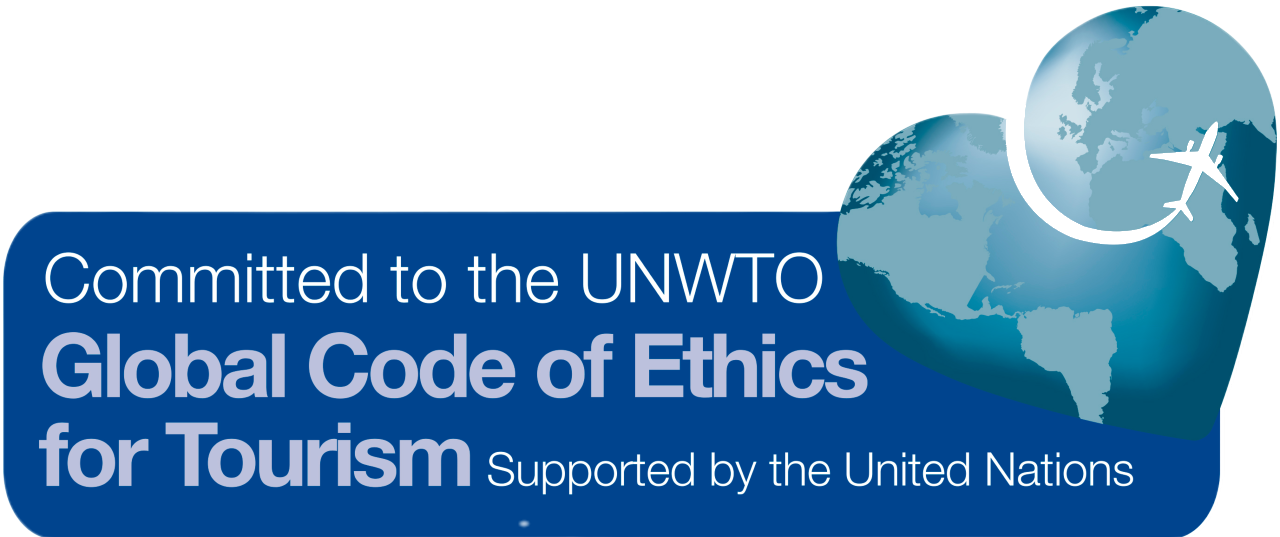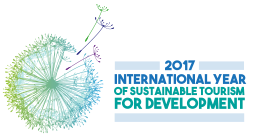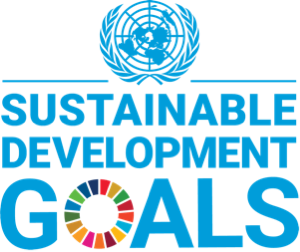
Sustainability
-
Get informed
Before and during the trip, find out about the characteristics of the destination, its history, customs, and living conditions
- Civitatis' online guides are an excellent resource to prepare for your trip, and there you'll find plenty of practical information.
- At your destination, go to the tourist information points to receive updated information on activities, services, and local regulations.
Look into the health and safety conditions of your destination
- Find out where you can get medical assistance and how to contact your embassy in an emergency.
Find out about local laws so you don't unintentionally commit any crimes
-
Travel with an open mind
Look at your trip as a form of self-education
Value diversity
Respect local customs
- Look to understand local customs, norms and traditions, taking into account history, religion, political, social and geographical conditions.
- Look for good relationships with the local population, avoid behaviors that may offend them.
- Learn a few words in the native language. This will make it easier for you to communicate with the local community.
-
Respect cultural heritage
Look to participate in, and support, authentic cultural manifestations
Do not damage cultural property, or remove it, or its pieces, from their place
- Respect the signs in cultural monuments, such as “dno photos with flash”, “do not touch”, etc.
-
Care for the environment
Try to minimize the footprint you leave and maximize the positive impact of your activities on the local community and environment
- Prioritise tours on foot or in ecological transport, such as bike, segway or scrooser.
- For medium and long distance excursions choose train or group transport, as well as group excursions.
Reduce, reuse, recycle
- Wherever you are, save water and energy. Don't forget to turn off the lights, air conditioning or heating, when you leave your accommodation.
- Take a bottle with you to refill with water, instead of buying several disposable bottles.
- Reuse shopping bags, and prioritise the use of cloth and paper bags.
- Avoid buying products with a lot of packaging.
- In hotels, ask that towels and sheets be changed only when you need it.
- Reduce waste.
- Recycle where possible.
Help conserve the natural environment
- Care for plant and wild life
- Leave waste in the designated places.
- Respect the areas with prohibited or restricted access.
Prioritize technology media over print
- Read online guides on your electronic device.
- Download our applications in the App Store or on Google Play for your mobile or tablet, so you will have useful information and maps at hand without using paper.
- Once you book a service with Civitatis, see if you can use the voucher on your phone or tablet: you will find this information below the description of each activity in the "Receipt" section.
-
Use technology
Prioritize tech media over print
- Read online guides on your computer, mobile phone or tablet.
- Download our applications on your mobile or tablet to have useful information and maps at your fingertips, without the need to print.
- When you book a service with Civitatis, see if you can use the voucher on your mobile: you can find this information under the description of each activity in the "Voucher" section.
-
Support the local economy
Buy local crafts and products for your souvenirs and gifts
Organize your diet based on the local cuisine
When haggling, keep the concept of fair wages in mind
Do not buy counterfeit products and articles or prohibited by national or international regulations
-
Defend human rights
If you notice any form of labour exploitation or forced labour, abuse or mistreatment, do not hesitate to report illegal acts, especially if they affect minors or vulnerable people
-
Respect the rules
Respect local and ineternational laws
- Do not participate in the illicit traffic of drugs, weapons, species or protected cultural property, antiques, or dangerous products or substances.
-
Share your experience
Share your opinions and stories honestly, taking into account the effect they may have on the local community
-
Promote a culture of sustainable tourism
Promote sustainable tourism, and encourage those around you to follow these guidelines
-
We're insaitiable... and responsible travellers!
-
We comply with our Responsible Traveler Manifesto.
-
-
We value diversity
- We offer services that value cultural authenticity and biodiversity.
- We are a multidisciplinary and international team made up of 14 different nationalities.
- We act without discrimination based on gender, race, color, national, social or ethnic origin, age, marital status, sexual orientation, religion, political opinions or any other personal, physical or social condition.
-
We're transparent and we prioritise communication
- We offer objective and truthful information about destinations and services;
- We develop communication channels in order to establish solid relationships, consolidate common goals, integrate each one into the team and receive continuous feedback.
-
Reduce, reuse, recycle
- We have a policy of good environmental practices in the office: we avoid printing documents as much as possible, we recycle everything recyclable, we use coffee machines without capsules and much more.
- We promote sustainable practices among Civitatis clients and suppliers.
-
We do our best
- We work with a high level of professionalism and a continuous search for excellence.
- We make a studied selection of the best services around the world.
-
We enjoy work (and outside of work)
- We promote a good work and non-work environment: flexible hours, fresh fruit every day, yoga classes, board games, sports activities, volunteering, etc.
- We recognise the efforts and merits of all workers.
- We value everyone's opinion and present suggestions in a constructive and positive way.
- We support each other: we ask for and give help when needed.
-
We do the right thing
- We respect current legislation, human rights and international ethical standards.
- We act with integrity: we never use bribery, extortion or falsification of documents. We promise not to offer, request or receive high value gifts or unjustified services in order to obtain benefits for the company, for themselves or for a third party, or in order to influence decision making. Symbolic courtesy gifts and donations regulated by law are allowed.
- We admit mistakes: we are all human and can make mistakes, the important thing is to try to avoid them, admit them if they arise, seek to solve them and learn based on our own failures and those of others.
-
We collaborate in the development of sustainable tourism
- We give the utmost importance to the opinions and suggestions of our consumers in order to offer the best product: our clients are our eyes.
- We work to make tourism accessible to everyone, seeking the best prices and promoting tourism for families, young people, students, the elderly and people with disabilities.
- Together with our suppliers, we seek to enhance the positive effect of our services in destinations,aiding in the development of local communities.
- We create a positive impact: we promote solidarity initiatives, carry out charity tours, volunteer work, etc.
-
We are restless
- We learn when travelling
- All colleagues receive initial and ongoing training: English classes, specific courses for each department, etc.
-
We inspire
- Our clients, to get know the world in an enriching way.
- Each member of the team, to develop their potential to the maximum.
-
Provide a safe, satisfying and enriching experience
- Follow security measures as established by the authorities.
- Seek maximum customer satisfaction and provide a complete experience.
-
Reduce, reuse, recycle
- Reduce the use of water, paper and plastics in work facilities and in the development of tourist services.
- Recycle paper, glass, plastics, toners, batteries, and other objects as much as possible.
-
Apply and develop environmentally friendly technologies
- Encourage the use of electronic vouchers instead of printed ones.
- When barcodes / QR codes are necessary for check-in, incorporate them into Civitatis vouchers, promoting the digital format.
-
Job quality
- Offer safe and pleasant working conditions.
- Not to discriminate on the basis of gender, race, color, national, social or ethnic origin, age, marital status, sexual orientation, religion, political opinions or any other personal, physical or social condition.
- Reject any expression of abuse of authority, physical, psychological, moral or sexual harassment.
- Civitatis DOES NOT collaborate with suppliers that apply any form of exploitation and / or forced labor to their activity.
-
Support the development of local communities
- Contribute to the improvement of the local quality of life: job creation, promotion of local production, respect for indigenous heritage, etc.
-
Respect cultural authenticity and reject standardisation
- Promote authentic cultural manifestations, as long as they respect human rights and do not negatively affect biodiversity.
- Not impose external cultures.
- When it comes to indigenous tourism, always developed in collaboration with or led by local communities.
- Explain to tourists the local norms of behavior through their guides.
-
Preserve cultural and environmental heritage
- Develop activities with the least possible cultural and environmental footprint.
- Use the least polluting means of transport possible.
- Control tourism to alleviate its negative impact.
-
Ensure animal welfare
If animals are involved in the activities, the Five Freedoms of Animal Welfare must be respected:
- Be free from hunger and thirst: with access to fresh water and a nutritious diet.
- Be free from discomfort: providing a suitable environment including shelter and a comfortable resting area.
- Be free from pain, injury and disease: through prevention or rapid diagnosis of the same and subsequent effective treatment.
- Be free to express normal behavior: providing sufficient space, adequate facilities and, if possible, the company of animals of the animal's own species.
- Be free from fear and distress: ensuring the conditions and treatment that avoid physical and / or mental suffering.
Therefore, the following services are prohibited from publishing on the Civitatis platform:
- Activities that force wild animals* to be in forced physical contact with tourists. Example: elephant riding, swimming with dolphins in captivity, etc.
- Shows, including circuses, in which wild animals are forced to display behaviours that are unnatural to them, which ridicule and degrade them, e.g. imitating humans, playing football, painting, wearing costumes, etc.
- Activities where sedated animals are used. Example: photos with sedated tigers.
- Facilities that do not provide the appropriate environment, food and veterinary checks.
- Activities involving animal suffering and/or death for entertainment purposes, e.g. bullfighting.
- Hunting of animals by tourists, except for fishing for food.
Activities and facilities permitted on Civitatis:
- Safaris, watchings, snorkelling, scuba diving in natural or semi-natural environments (such as reserves) where wildlife can be observed and animals are free to approach tourists of their own free will or to move away from them.
- Sanctuaries, where wild animals are not forced to be in contact with tourists and, are not chained.
- Zoos and aquariums whose main objective is species conservation and education, which comply with the appropriate conditions established by the competent public and/or international bodies.
- Shows that are carried out for primarily educational purposes in which animals display behaviours that are natural to them. The structures must be members of WAZA or have a membership and/or accreditation from one of its regional associations.
- Exceptionally, performances involving animals may be admitted in sites that are not members of WAZA or its local associations, which pass a prior evaluation by our experts based on criteria of contribution to the conservation of the species, and the role that this activity can play for the livelihood of the local community and the dissemination of cultural heritage.
- Activities with domesticated animals*, such as horse, camel, donkey, husky sledging, etc., provided that the Five Freedoms are respected. Specific conditions for horse and donkey rides:
- For riding: one person per animal.
- For wagon rides: one person per wheel.
--
*Distinguishing between wild, domesticated and tamed animalsTo distinguish between wild and domesticated animals we refer to the National Geographic article "Domesticated animals, explained":
Domesticated animals are animals that have been selectively bred and genetically adapted over generations to live alongside humans. They are genetically distinct from their wild ancestors or cousins.
...
Domestication is not the same as taming. A domesticated animal is genetically determined to be tolerant of humans. A wild animal, or a wild animal born in captivity, can be tamed - its behaviour can be conditioned to become accustomed to living alongside humans - but it is not truly domesticated and remains genetically wild.
List of domesticated animals
Dog, sheep, cat, goat, pig, cattle and cattle, chicken, guinea pig, zebu, llama and alpaca, donkey, horse, silkworm, camel, honey bee, yak, water buffalo, duck, reindeer, meliponini (stingless bee), turkey, creole duck, ostrich.
-
Promote sustainable and responsible practices among clients and collaborators
- Promote sustainable and responsible practices among clients and collaborators, in line with the Civitatis Manifesto
- In activities in which the use of headphones is necessary, encourage clients to use their own headphones to avoid the use of single-use headphones.
-
Integrity
- To not offer, request or receive gifts of high value or unjustified services in order to obtain benefits for the company, for themselves or for a third party, or in order to influence decision-making. Symbolic courtesy gifts and donations regulated by law are allowed.
- To not implement any other practice of bribery or extortion.
- To not falsify documents under any circumstances.
-
Articles
- Get in touch with our sustainability team sustainability@civitatis.com +34 912 93 92 93
- Civitatis Sustainability Report Report 2017-2020 1.145KB





